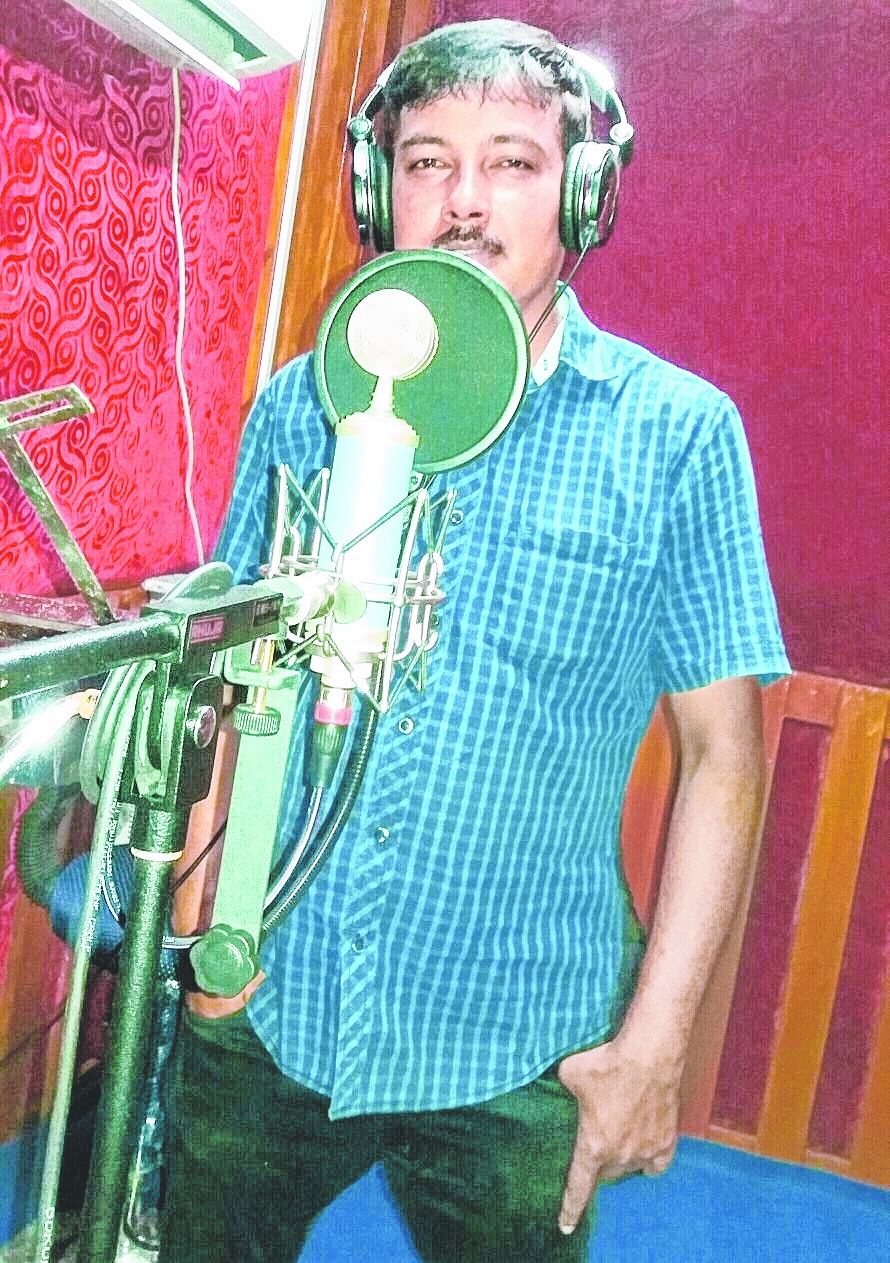
Jorhat, Aug. 8: The transition of the song Saare jahan se accha, Hindustan hamara is complete - from Urdu to Sanskrit. For singer and songwriter Ranjan Bezbaruah, the transition is from the regional to the national stage.
The Sanskrit scholar, whose mission is to take the songs of greats like Bhupen Hazarika, Jyoti Prasad Agarwalla and Bishnu Prasad Rabha to a wider audience through the medium of Sanskrit, has transposed himself to the national stage by rendering and singing the country's unofficial national song Saare jahan se accha in the classical language. The song will be aired on Doordarshan on Independence Day.
The singer told The Telegraph over phone from his home in Nagaon that he had sung the song with a group of women as chorus.
"A cinematic representation of the song has been shot and will be screened on Independence Day on Doordarshan. I am excited and wonder what the response will be of those who hear it. This is the first time that this patriotic song has been translated and sung in Sanskrit," he said.
Saare jahan se accha was written by Urdu poet Mohammad Iqbal and published in the magazine Ittehad on August 16, 1904.
The song became popular as a patriotic song among Indians engaged in the freedom struggle against the British prior to Independence.
Bezbaruah said it took him a while to translate the song into Sanskrit as he wanted to get the words and fervour which the song evoked absolutely right.
"The Sanskrit version has to match perfectly in phonetics, tone, spirit and conform to music and not just be a literal translation," he said.
He has released a series of audio albums - Manomohini (2011), Mriganayana (2011), Sagara Sanfamah - In the confluence of the Seas (2012), Anandini (2015) and Yashoda Nandana which is under production.
He has also translated and sung a couple of Rabindra-sangeets and folk songs. In his translation of Assamese songs, he has often had to dispense with the strict rules of the classical language. "My mission is also to popularise Sanskrit considered to be a dead language by many."
"Sanskrit may well be spoken by a minority now, but it is the root of all Aryan languages. Many of the words of this language form the vocabulary of the majority of Indian languages and can be easily understood," he explained.
"Sanskrit is considered to be spoken by the sophisticated and elitist class. If I have to make these songs as popular in Sanskrit, the words need to be tweaked and intoned in the regional accent. This helps in keeping the colloquial essence of the lyrics intact and thereby garners greater acceptance of the songs which are mostly folk based," he said.
Bezbaruah has garnered a fan following in other states as well. He has sung in Calcutta, Mumbai, Pune and Delhi.









